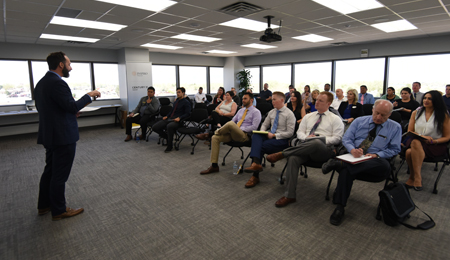Today I want to talk about the importance of understanding the pros and cons of downtown living environments versus rural ones so that you can truly be a market expert for your clients.
I’ve bought and sold so many properties with different agents who never even looked at the information regarding the property, its documentation, or any other details that would help their clients. In fact, I’ve bought the majority of my investment properties from agents who miscalculated the value of the property or didn’t understand its dynamic. There are three things to remember to truly understand the difference between these two types of living environments.
First, with any property located in a market with a lot of new construction, ordinances, permits, city requirements, and escalating values, make sure you understand the contracts and documentation involved. Specifically, Section 7 of our Real Estate Purchase Contract, where you’re able to evaluate the seller’s disclosures, HOA details, etc. In a downtown environment, you need to make sure that the HOA even has a budget. I’ve sold downtown properties inside HOAs that didn’t have any money. I never would’ve purchased these properties, but the agents that bought them didn’t even look at the documentation that was provided to them.
Second, know your clients’ needs today and five years down the road. For example, if a husband and wife tell you they want a one-bedroom/one-bath apartment to live in so they can start a family, that apartment isn’t going to work for them a year or two from now. You need to know your clients’ long-term and short-term needs in case things change. This includes information like where they work, what they do on weekends, and things they value.
Your client may want to live downtown, for instance, but if their potential property doesn’t offer a parking spot and they happen to be a roofer, it may not work for them because they’ll have to worry about things getting stolen out of their truck. Then again, they may want a rural property, but if it requires a daily commute of one hour each way and they have little kids at home, it might not work either because they’d never actually be at home.
Lastly, evaluate properties on a daily basis. If there’s any future education you can pursue regarding this point, please do so. I’m in the middle of getting my master’s degree in real estate development because I need to grow and have a deeper knowledge of everything. You need to understand things like new construction, cost per square foot, the dynamic of existing homes and multifamily properties, the details of different HOAs, etc. It doesn’t have to take long. You can simply ask an HOA representative to meet you for lunch and you’ll get more education in 20 or 30 minutes than however long it would take you to read a 50-page document.
When you provide this knowledge and information, your clients will get the most help possible from you and want to continue working with you. They’ll make sure you’re their expert advisor. At the end of the day, we’re trying to provide them with world-class service, so take these things into consideration.
If you have questions about this topic, don’t hesitate to call or email me. If you’re looking for ways to build a better business or a top-notch team to join, feel free to reach out to me as well. We’re always growing and looking for ways to serve you. I hope to hear from you!




